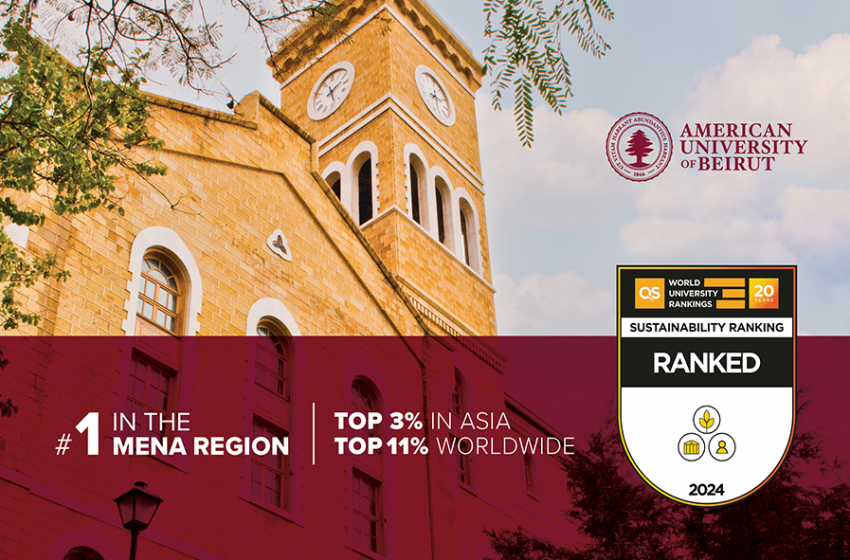AUB remains 1st in the MENA region and among the world’s top in the QS WUR for sustainability

This year’s Quacquarelli Symonds (QS) World University Rankings (WUR) for Sustainability ranked the American University of Beirut (AUB), yet again, 1st in the MENA region. Ranked amongst 1,403 institutions this year¾double the number of institutions last year (703)¾AUB was 1st of four ranked universities in Lebanon, 16th (out of 478) in Asia, and tied at 152 worldwide.
In its second edition, QS WUR: Sustainability reflects the performance of universities across all sixteen United Nations (UN) Sustainable Development Goals (SDGs) and over three categories: Environmental and Social Impact, in addition to the newly introduced Governance category. The ranking assesses the performance of institutions through approximately 53 indicators grouped as lenses making up the categories.
AUB was ranked ‘113=’ in the Environmental Impact category, ‘240=’ in the Social Impact category, and ‘399=’ in Governance. The university’s strongest performance lens was Environmental Education under the Environmental Impact category with a rank of ‘17’ worldwide. This can mainly be explained by its environmental and climate sciences reputation, its sustainability courses and programs, and development studies that promote a sustainable environment through teaching and research, while disseminating public policies and acting on social justice. This metric also looked at the impact of AUB’s graduates in the public sector (government) and the third sector (charities and NGOs).
In addition to assessing the environmental, social, and governance (ESG) perspective, this year’s QS ranking incorporates novel indicators such as open access publishing, renewable energy, and policy citation metrics. These metrics evaluate an institution’s influence in digital democracy, climate impact reduction, and policy documentation. The ranking also considers progress in knowledge exchange within less-developed nations, the impact of alumni on environmental and social challenges in both public and private sectors, the existence of publicly available policies supporting social and environmental initiatives, and the extent of academic freedom.
For AUB, this ranking serves as a reflection of its efforts in addressing global environmental, social, and governance challenges. It offers a comprehensive and holistic overview of AUB’s achievements in relation to Sustainable Development Goals (SDGs). Once again, AUB demonstrates its commitment to preparing new generations to confront SDG challenges and contribute to the advancement of research in sustainable development.






